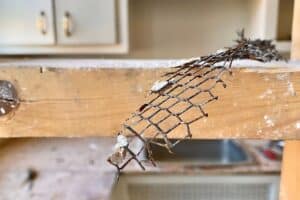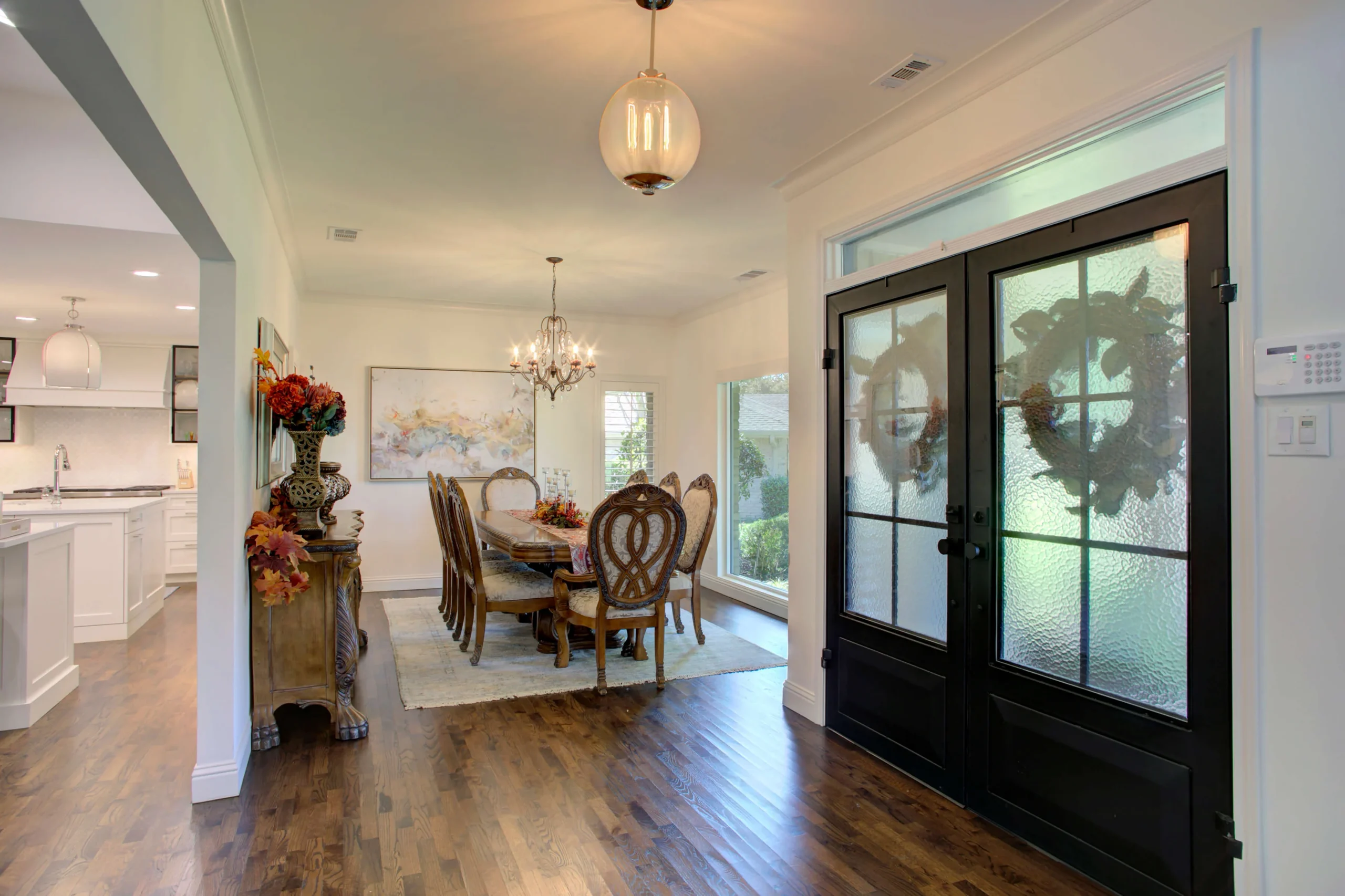Are you ready to improve your home but worried about making costly mistakes? You’re not alone.
Many homeowners dive into projects with the best intentions, only to face unexpected problems that drain time, money, and energy. What if you could avoid those pitfalls before they happen? You’ll discover the most common home improvement mistakes and learn how to steer clear of them.
By paying attention to these simple tips, you’ll save yourself stress and get the results you truly want. Keep reading—your dream home is closer than you think.
Planning Pitfalls
Home improvement projects need careful planning. Poor planning causes delays and extra costs.
Knowing common mistakes helps you avoid problems during your renovation.
Skipping The Budget
Not setting a budget leads to overspending. You may run out of money before the project ends.
A clear budget keeps your spending on track. Include costs for materials, labor, and unexpected expenses.
- List all needed materials and prices
- Include labor costs and fees
- Set aside money for surprises
Ignoring Permits
Some projects need permits from local authorities. Ignoring this can cause fines or stop work.
Check if your project requires permits before starting. Getting permits ensures your work is legal and safe.
- Contact your local building office
- Ask about permits for your work
- Apply and wait for approval
Underestimating Time
Home projects often take longer than planned. Underestimating time causes frustration and extra costs.
Plan for delays like weather, delivery, or unexpected problems. Add extra days to your schedule.
- Check supplier delivery times
- Prepare for bad weather
- Allow time for fixing issues

Credit: dailydwellings.com
Design Errors
Design errors can make home improvements less enjoyable. They affect how your space looks and feels.
Fixing these errors early saves money and time. It helps create a better living environment.
Poor Space Utilization
Poor space use makes rooms feel cramped or empty. It wastes valuable area in your home.
Think about how you move and use each room. Avoid placing big furniture where it blocks paths.
- Measure your space before buying furniture
- Use vertical storage to save floor space
- Keep walkways clear and open
Clashing Styles
Mixing different design styles can confuse the eye. It creates a messy and unplanned look.
Pick a style and stick with it in each room. Use colors and textures that work well together.
- Match furniture styles for a balanced look
- Use a consistent color palette
- Avoid too many patterns in one space
Neglecting Functionality
Ignoring how rooms function leads to daily problems. Beautiful spaces must be practical too.
Consider lighting, storage, and comfort. Design should support your lifestyle and needs.
- Install enough lighting for tasks
- Plan storage where you need it most
- Choose furniture that fits your daily use
Diy Dangers
Doing home projects yourself can save money. It also lets you learn new skills. But DIY work can be risky.
Many people make mistakes that cause injuries or damage. Knowing what to avoid keeps you safe and your home sound.
Lack Of Proper Tools
Using the wrong tools can harm you or ruin your work. Proper tools make tasks easier and safer. Do not guess with tools.
Buying or borrowing the right tools is worth the cost. Avoid using broken or poor-quality tools. They can cause accidents.
- Use the right size screwdriver or drill bit
- Wear gloves when handling sharp tools
- Keep tools clean and in good shape
- Read instructions before using new tools
Overestimating Skills
Trying jobs beyond your skill level can lead to mistakes. Some tasks need training or experience. Know your limits before starting.
Start with small projects to build skills. Ask for help if unsure. Fixing big problems caused by errors costs more time and money.
- Learn basic skills from videos or books
- Practice on less important areas first
- Stop and ask for advice if stuck
- Hire a professional if the job is complex
Ignoring Safety Measures
Skipping safety rules can cause injuries. Always protect yourself with gear like gloves and goggles. Follow safety steps carefully.
Read warnings on materials and tools. Make sure your workspace is clean and well-lit. Safety helps you finish projects without harm.
- Wear protective clothing and eye protection
- Keep children and pets away from work areas
- Turn off power before electrical work
- Use ladders safely and avoid overreaching
Material Mistakes
Using the right materials is key to a good home improvement. Bad choices cause extra costs and repairs. Avoid these common material mistakes.
This guide covers three main mistakes: low-quality products, mismatched finishes, and buying too much material.
Choosing Low-quality Products
Low-quality products may seem cheaper at first. They often break or wear out fast. This leads to more repairs and costs later.
Buy durable materials that fit your needs. Check reviews and ask experts before buying.
Mismatched Finishes
Using different finishes can make rooms look messy. Mismatched colors or textures reduce the home’s appeal.
Pick finishes that match or complement each other. This creates a smooth, balanced look.
Buying Excess Materials
Buying more materials than needed wastes money and space. Extra items may get damaged or go unused.
- Measure your space carefully
- Calculate the exact amount needed
- Keep a small extra amount for mistakes
Hiring Hazards
Hiring the right people for home improvement is very important. Bad hires can cause delays, extra costs, and poor work.
Avoiding common hiring mistakes helps keep your project on track and saves money.
Not Checking Credentials
Many homeowners skip verifying a worker’s credentials. This can lead to hiring unqualified or unlicensed workers.
Always check licenses, insurance, and past work to ensure the person can do the job well.
- Ask for proof of license and insurance
- Check references from past clients
- Look for reviews online
Poor Communication
Clear communication is key to a smooth project. Without it, mistakes and misunderstandings happen.
Set expectations and keep in touch regularly to avoid problems during the work.
- Discuss project details before work starts
- Agree on deadlines and budgets
- Use calls or messages to update progress
Failing To Get Written Contracts
Not having a written contract can cause big problems. Verbal agreements are hard to prove.
A written contract protects both you and the worker. It should include all project details and costs.
- Describe work clearly in the contract
- Include payment terms and schedule
- State warranty and cleanup responsibilities

Credit: www.nhcbuild.com
Maintenance Missteps
Home maintenance is key to keeping your house safe and nice. Many people make mistakes that cause bigger problems later.
Knowing what common errors to avoid helps you save money and time. This guide covers three important maintenance mistakes.
Skipping Regular Upkeep
Many skip small tasks like cleaning gutters or changing filters. Skipping these jobs lets dirt and damage build up.
Regular upkeep stops small issues from turning into big repairs. It also keeps your home working well.
- Check your roof and gutters twice a year
- Replace HVAC filters every 1-3 months
- Test smoke detectors monthly
- Clean drains and pipes to avoid clogs
Ignoring Warning Signs
Warning signs show your home needs attention. Ignoring leaks, cracks, or noises can cause bigger damage.
Look for water stains, mold, or unusual sounds. Fix problems early to avoid costly repairs later.
- Check walls and ceilings for water marks
- Listen for strange sounds in plumbing or heating
- Watch for cracks in foundations or floors
- Notice any smells like mold or gas
Using Wrong Cleaning Methods
Using harsh chemicals or wrong tools can damage surfaces. Some materials need special care to stay strong.
Read labels and use gentle cleaners on wood, stone, and paint. Wrong cleaning causes stains or wear.
- Use mild soap and water for painted walls
- Avoid abrasive scrubbers on wood floors
- Use stone cleaner for granite or marble
- Test cleaners on small areas first

Credit: www.neilkelly.com
Frequently Asked Questions
What Are Common Home Improvement Mistakes To Avoid?
Common mistakes include poor planning, ignoring permits, underestimating costs, and choosing low-quality materials. These lead to delays, extra expenses, and dissatisfaction.
How To Prevent Budget Overruns In Home Renovations?
Create a detailed budget with a contingency fund. Track expenses closely and avoid impulsive changes to the original plan.
Why Is Hiring The Right Contractor Important?
A skilled contractor ensures quality work, meets deadlines, and follows safety standards. This prevents costly errors and project delays.
What Permits Are Needed For Home Improvements?
Permits depend on your location and project type. Always check local regulations to avoid fines and forced work stoppage.
Conclusion
Avoiding common mistakes makes home improvement projects smoother. Plan before you start. Double-check measurements for accuracy. Choose quality materials to ensure durability. Stick to a budget to avoid overspending. Consult professionals when needed for expert advice. Remember, patience is key during renovations.
Rushed jobs often lead to costly errors. Keep safety a priority. Use proper tools and equipment. With thoughtful planning and attention, your home will reflect your vision. Embrace the process, learn, and enjoy the transformation. Your efforts will create a comfortable and beautiful space.
Happy renovating!
8 min read

